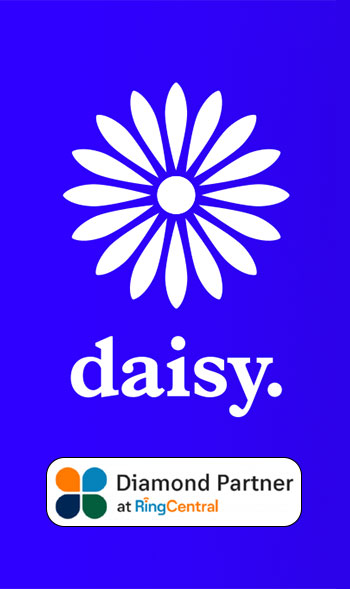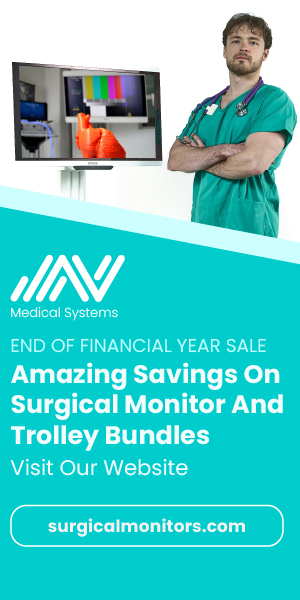
The pandemic showed that digitalisation underpinned by the latest in communications technology, can provide answers to seemingly intractable problems. Much has already been achieved, but it is now vital to build upon this progress.
This white paper will explore ways in which greater advances can be made. In partnership with RingCentral, it provides insight into how the latest developments in communications technology are enabling organisations to power forwards, helping them redefine an NHS that can look to the future with confidence.
AN EFFECTIVE RESPONSE TO CRISIS
When the pandemic hit, the impact on primary care was immediate. Statistics compiled from NHS Digital research1 showed that the number of face-to-face appointments fell by 7.5 million during the early months of the first wave – a reduction of nearly 50%. Over the same period, telephone and online consultation rose from 15% to 48%, as practices began to make use of technologies such as telecare, virtual surgeries and digital triaging.
As the pandemic recedes into the national memory, any notion that demand for primary care might be experiencing a reduction would be incorrect. In fact, the opposite is true. Demand for services is growing at a rapid rate and GPs fear excessive workloads and rising demand are impacting their ability to provide quality care.

ENDING THE 8AM RUSH
The government has acknowledged the need to act, unveiling plans to reform and modernise primary care. Aiming to end the so-called “8am rush”, the delivery plan for Modern General Practice Access has been backed by funding of £240 million to support practices using analogue telephone lines to switch to digital.
Evidence suggests the public is ready to embrace innovation. In England alone, more than 30 million2 people have already signed up to use the NHS app,
indicating citizens are increasingly comfortable with health and care technologies. Now, more than ever before, it is vital to ensure that opportunities are grasped. For providers of primary health and care, merely maintaining the status quo is no longer an option.
“Innovation remains a cornerstone of the NHS, and it is now more important than ever before. The NHS is still facing ongoing pressures, but innovation is playing a crucial role in every aspect of our work. From operational pressures, increased demand to tackling health inequalities and improving outcomes, innovation is rising to the challenge.”3
Effective communications solutions are the essential foundation allowing services to be fully joined-up, handing control to patients and enabling streamlined collaboration between primary care and the multiplicity of secondary providers and partner organisations working to maintain the health of the nation.
Integration creates a win-win situation, helping to reduce workloads while ultimately delivering better outcomes. Pre-emptive healthcare becomes a reality, with preventative treatments further reducing the pressure on resources throughout the system.
However, the rhetoric has not always been matched by the results. Data from the GovNews/RingCentral survey shows a tendency for organisations within this sector to rely on traditional communications channels such as mail and fax.

CULTIVATING CHANGE: CLOSING KNOWLEDGE GAPS
Teams must foster a culture of change and bridge knowledge gaps to unlock the potential of recent technological advancements. While primary health and care lead the way in some areas, such as migrating telephony to the cloud, there’s still room for improvement. Cloud-based unified communications offer immediate benefits, streamlining operations to ease staff pressure and enhance citizen services. Despite this, over a third of organisations haven’t capitalised on these platforms. GP practices deliver more than 1 million consultations4 every working day. The latest phone technology can increase patients’ ability to reach their practice by almost a third5, with online appointments made more easily available to those preferring the option.
THE TIME IS NOW
The NHS stands at a critical juncture, recognising the necessity of change for its continued existence. Despite the severe impact of the pandemic, primary care providers demonstrated remarkable adaptability, swiftly transforming operations to ensure uninterrupted service delivery. The success of the NHS in dealing with these challenges successfully shows that primary care organisations are poised to build on the positive takeaways and embrace innovation in streamlining communications, to achieve the vision of fully integrated health and care services. In choosing the right partner to support their digital journey, primary care providers are laying strong foundations, building healthier, fairer communities and powering towards excellence.
Daisy is a trusted partner for more than 60 NHS trusts, 140 private healthcare providers, and a number of emergency services across the UK.
Choosing Daisy and RingCentral can offer you a faster, Gartner-endorsed route to powerful, future-proofed communications. As a RingCentral Diamond Partner, we can deliver and support on RingCentral’s cloud communications and collaboration platform, facilitating seamless interaction and teamwork among frontline workers, regardless of their device or location.
References
1. Health Foundation/Nuffield Trust research.
2. NHS Digital news article.
3. NHS England blog.
4. BMA GP workforce data.
5. Gov.UK press release.
More Information:
For more information our specialists are on hand – Call: 0344 863 3000
Email: [email protected]
Web: https://daisyuk.tech/









